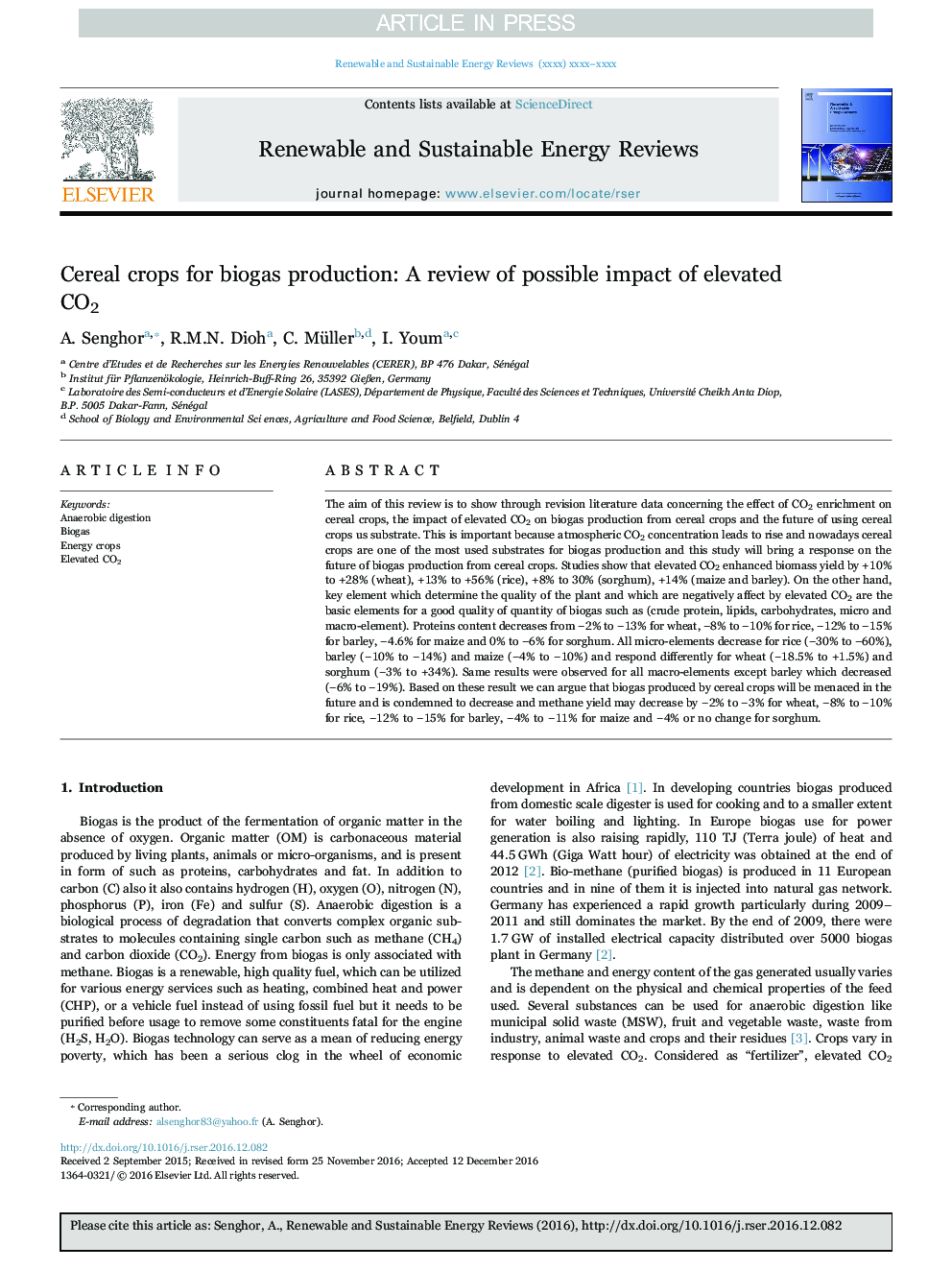| Article ID | Journal | Published Year | Pages | File Type |
|---|---|---|---|---|
| 5483062 | Renewable and Sustainable Energy Reviews | 2017 | 7 Pages |
Abstract
The aim of this review is to show through revision literature data concerning the effect of CO2 enrichment on cereal crops, the impact of elevated CO2 on biogas production from cereal crops and the future of using cereal crops us substrate. This is important because atmospheric CO2 concentration leads to rise and nowadays cereal crops are one of the most used substrates for biogas production and this study will bring a response on the future of biogas production from cereal crops. Studies show that elevated CO2 enhanced biomass yield by +10% to +28% (wheat), +13% to +56% (rice), +8% to 30% (sorghum), +14% (maize and barley). On the other hand, key element which determine the quality of the plant and which are negatively affect by elevated CO2 are the basic elements for a good quality of quantity of biogas such as (crude protein, lipids, carbohydrates, micro and macro-element). Proteins content decreases from â2% to â13% for wheat, â8% to â10% for rice, â12% to â15% for barley, â4.6% for maize and 0% to â6% for sorghum. All micro-elements decrease for rice (â30% to â60%), barley (â10% to â14%) and maize (â4% to â10%) and respond differently for wheat (â18.5% to +1.5%) and sorghum (â3% to +34%). Same results were observed for all macro-elements except barley which decreased (â6% to â19%). Based on these result we can argue that biogas produced by cereal crops will be menaced in the future and is condemned to decrease and methane yield may decrease by â2% to â3% for wheat, â8% to â10% for rice, â12% to â15% for barley, â4% to â11% for maize and â4% or no change for sorghum.
Related Topics
Physical Sciences and Engineering
Energy
Renewable Energy, Sustainability and the Environment
Authors
A. Senghor, R.M.N. Dioh, C. Müller, I. Youm,
